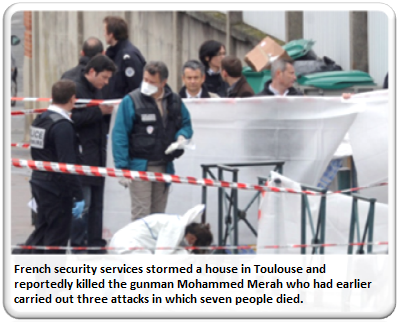 Published: 23 March 2012
Published: 23 March 2012
Region: France & Worldwide
By Aidan White

As media across Europe begin to debate the consequences of the Toulouse terror attacks press freedom groups in France have reacted strongly to a plan by French President Nicolas Sarkozy to use the criminal law to crack down on people who visit Internet sites that promote race-hate and violence or are sympathetic to terrorism.
The threat was made on March 22 as French security services stormed a house in Toulouse and reportedly killed the gunman Mohammed Merah who had earlier carried out three attacks in which seven people died.
President Sarkozy, in the midst of a hard-fought Presidential election campaign, has intervened with a plan that human rights groups worry will limit free expression.
The Paris-based press freedom group Reporters Without Borders says that Sarkozy’s tough stance is “disproportionate and could lead to systematic monitoring of the Internet.” The group says the proposal is worrying for personal freedom and will force service providers to hand over the names of people who visit incriminating sites.
Although national security issues are vital and the Merah killings have provoked a new debate about the threat of Islamist terrorism, they warn that Sarkozy’s response will seriously threaten fundamental rights and add to the pressure civil liberties not just in France but across Europe where the so-called war on terror has led to a dramatic increase in official surveillance of citizens, and journalists in particular.
The threat to investigative journalism is clear. Reporters who trawl the Internet to monitor far-right extremists, racists and terrorist sympathizers will find themselves at risk of prosecution and the capacity of media to monitor these groups will be diminished.
Although the intervention may play well as a vote-winner, it is not yet clear how Sarkozy’s plan will work in practice, not least because the courts will have to decide how someone who visits a web-site with violent content can be considered a criminal and a threat to public order.
It is possible that many people – journalists, academics, researchers and others – may visit such sites without ever having sympathy with the cause being promoted. There are also questions over who will decide on the list of criminal web-sites and whether this list be made public.
In the coming days as the excitement and drama of the Toulouse events begins to recede, press freedom groups, journalists and many concerned citizens will frame testing questions for Sarkozy about his plan. This may well turn out to be an election ploy but could, if not amended, lead to one of the most troubling attacks on Internet freedom.